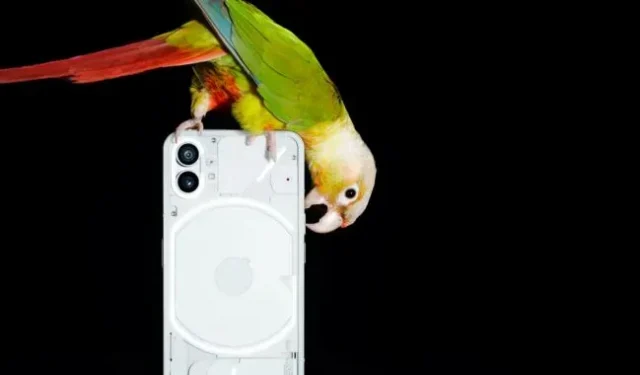With Phone (1) Nothing succeeds where Essential failed

A consumer electronics startup called Nothing has received more than $200 million in funding to launch its debut smartphone, the first time a newcomer has attempted to break into a market dominated by Apple and Samsung in several years.
Nothing will reveal the design of its first smartphone, called the Phone (1), on Wednesday before it goes on sale this summer. The device has a transparent back panel that reveals electronic components such as the wireless charging coil that are usually hidden, and runs on the Android operating system.
The company’s backers include Alphabet’s venture capital arm, EQT Ventures, and former Apple designer Tony Fadell. They are betting that Carl Pei, CEO of Nothing, who previously co-founded Chinese smartphone brand OnePlus, can succeed where even Andy Rubin, co-founder of the Android mobile operating system, has failed.
Rubin’s startup Essential raised $330 million but closed in 2020 after selling less than 100,000 smartphones in its first six months in 2017, according to estimates from market research firm IDC at the time.
“I come from a very hardware-focused background and he comes from a very software-centric background,” Pei said of Rubin in an interview with the Financial Times. “People with more confidence than me have tried and failed… They underestimated the complexity of this industry.”
Pei said that after a few years when most smartphones began to resemble the design of the Apple iPhone, “people are hungry for something new.”
After the failure of startups like Essential to come up with new designs, the smartphone market has become more concentrated.
Nearly three-quarters of the 1.4 billion smartphones sold globally last year came from just four companies, according to market analysts at Counterpoint.
Pei’s previous venture, OnePlus, is part of China’s BBK Electronics, which has emerged as the fourth-largest player in the smartphone market alongside Apple, Samsung and Xiaomi thanks to a range of brands including Oppo, Vivo and Realme.
That concentration in recent years has made it even more difficult to launch a new phone, Pei said. Manufacturers are more reluctant to work with newcomers after being burned by poor sales from earlier startups. Getting components, many of which are already limited in the industry, is more of a challenge for new entrants with lower volumes.
Last year, Nothing originally ordered about 700,000 screens for its first release of the phone (1), but was able to increase that order after raising additional capital and building confidence among distributors with the release last year of its first product, a pair of wireless headphones that the the same transparent case as his future phone. Nothing has shipped 530,000 Ear(1) units since the device went on sale last August.
This helped “prove to the market that this team can not only develop a really beautiful product, but also produce and sell it on a large scale,” Pei said. “Using this proof, we raised more money to be able to build a smartphone. And if the smartphone performs well afterwards, we can raise more money to do the next thing we want to do.”
Nothing has raised $144 million in equity and has a $65 million revolving line of credit from its channel partners. The company is working with O2 in the UK, Deutsche Telekom in Germany and Flipkart in India to distribute the phone when it is released, with ambitions of eventually launching in the US if the Phone(1) sells well.
Nothing has 330 employees who manage their supply chain and equipment from Shenzhen, China with design and marketing in Europe and other teams in India, Taiwan and California. The intellectual property behind its products is owned by the UK.
“A lot of Android makers are just taking market share from each other and not doing anything special to be able to even try to take share from Apple,” Pei said. “I think we will convert more iPhone users with this product than other Android phone users.”
As for Essential, some of his ideas could be given a second life with Phone (1). Nothing acquired some of its intellectual property assets last year.
Leave a Reply